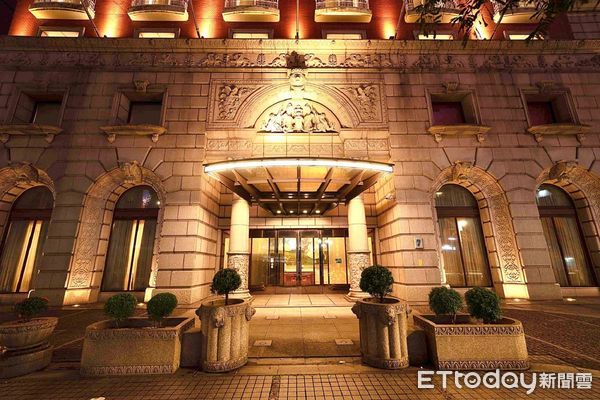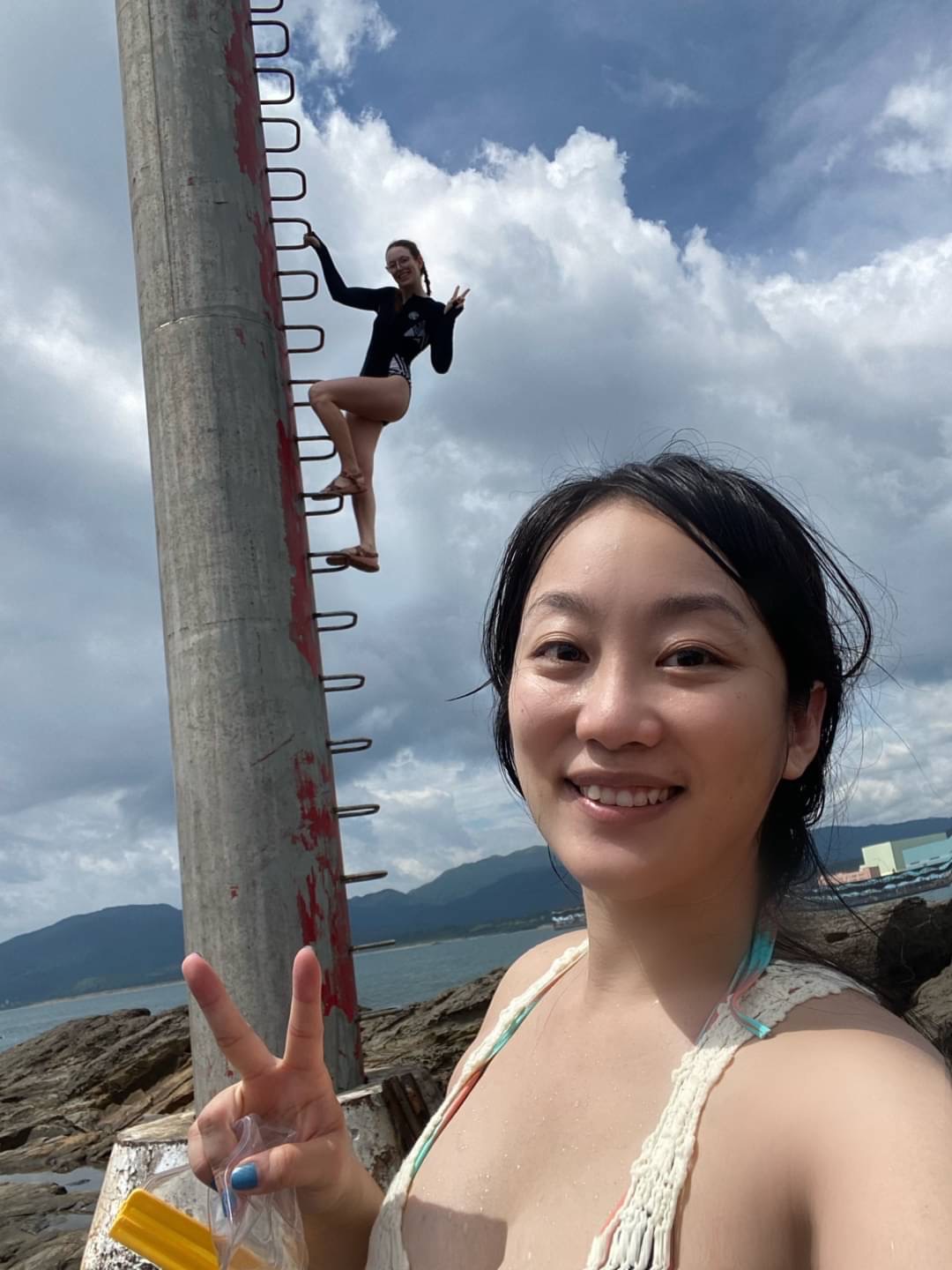On Saturday, some friends and I stand-up paddle boarded off the coast of Fulong to a tiny snorkeling spot called 金銀島, Treasure Island. Towards the end of the day, I thought I had thoroughly worn myself out from swimming in the ocean, but actually I had COVID!
After sleeping one night on the floor of the basement gym, and seeing a virtual doctor to get a confirmed diagnosis, I got a call the next day that a taxi driver had arrived to deliver me to my next destination.
Wearing a full hazmat suit, he spritzed my entire body (and the bottom of my shoes) with hand sanitizer before I could get into the taxi parked on the side of a busy road. I had no idea where the taxi was headed until we pull up to this regal-looking hotel, called the Hamp Court Palace, or 寶璞大飯店.

I was ushered to a high-end, spacious hotel room with a bathtub and a balcony, paid for by NTU (they got bad press for having students quarantine in tents in dorm basements).
Shortly after I arrive, my randomly assigned roommate arrives--someone who got COVID on the same day and thus will be quarantined with me for the next eight. She also brings her FROG, whose name is 呱呱 guāguā (the sound frogs make in Chinese).
Most Taiwanese students go home to quarantine, but Tainan, her hometown, is very far in the south. It turns out she is a veterinary medicine major from my same school.
 |
| The first meal delivered to us is McDonalds |
If I thought quarantine on my own was an interesting experience, then quarantine in a shared hotel room with a random Taiwanese person is a true psychological experiment. It's an economical method to create more quarantine arrangements in a city that got slammed by COVID but still wants to control the spread. In the end, I found it to be good for keeping one's spirits up and reminding us to fill it our thrice-daily symptoms and vitals chart.
My roommate turned out to be very sweet, and I'm very grateful for the constant extra Chinese practice, as well as the buddy for YouTube workouts. She hasn't figured out what "bless you" means yet (there isn't a phrase or concept in Chinese, so I've been saying it in English). She just looks at me a little confused every time I say it; I'm waiting for her to get the connection to her sneezing. She has been wearing her mask because she thinks her nose gets cold and that what makes it so runny. She asked the nurse if she was allowed to wash her hair here, because Taiwanese people think having a wet head makes you very vulnerable to sickness. Some people won't was their hair while on their period, and no one EVER leaves the house without blow-drying their hair first. While she has shampooed, conditioned, and blow-dried her hair every single evening, she has not changed her clothes at all, except to wear a special outfit to exercise in. She recommended I eat yellow kiwis and drink coconut water and Coke to feel better, even though both of our symptoms resolved completely within 36 hours.
I have learned so much COVID-related vocabulary. This whole bizarre process, involving many phone calls from the CDC, happened entirely in Chinese. Based on friends' experiences who don't speak Chinese, it was definitely smoother for it. Although being a foreign graduate student lowers the bar for every standard you have it life, it also makes hapless experiences all the more exciting.







No comments:
Post a Comment